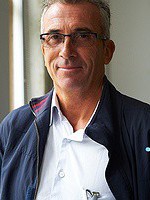resumo
In this study, and for the first time, the possibility of using bulk type waste-based granulated alkali-activated materials (AAM) for inducing heavy metals extraction by precipitation and adsorption was evaluated. Waste metakaolin and aluminium scrap recycling waste proved to be suitable precursors to create AAM. Results indicate that both methods are highly effective and promising for heavy metals extraction, removal efficiencies up to 100% were achieved. Lead was more efficiently removed by adsorption (99.4%; 16.5 mg/g), while higher zinc removal was achieved by precipitation (100%; 20.4 mg/g). These innovative waste-based alkali-activated granules, produced following a simple, sustainable and low-cost technique, are highly effective in the removal of lead and zinc from wastewaters, being a safer alternative to the use of powdered precipitation/adsorbent materials and can be directly used in packed beds. Future work will address the reuse of these granules, after their exhaustion as adsorbents, as aggregates in the production of new building materials, further closing the materials loop and enhancing the circularity of this material.
palavras-chave
INORGANIC POLYMER SPHERES; FLY-ASH; HEAVY-METALS; GEOPOLYMER SPHERES; ADSORPTION; WATER; ZINC; LEAD; METAKAOLIN; IMMOBILIZATION
categoria
Chemistry; Materials Science; Mineralogy
autores
Bumanis, G; Novais, RM; Carvalheiras, J; Bajare, D; Labrincha, JA
nossos autores
agradecimentos
This article is based upon work from COST Action TU 1301 NORM for Building Materials NORM4BUILDING; and was performed within the scope of CICECO-Aveiro Institute of Materials, POCI-01-0145FEDER-007679 (FCT Ref. UID/CTM/50011/2013), financed by national funds through the FCT/MEC and when appropriate co-financed by FEDER under the PT2020 Partnership Agreement.




